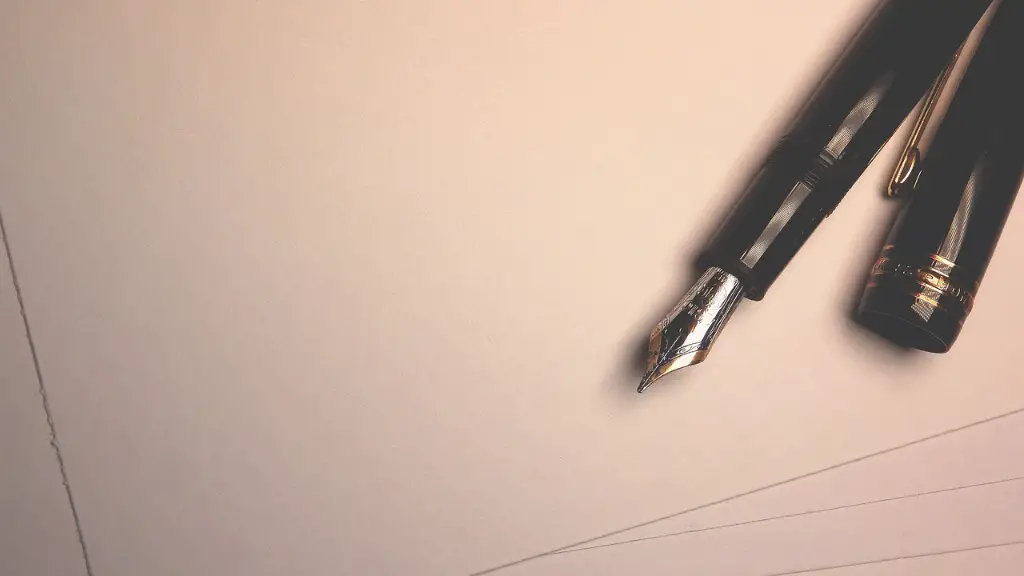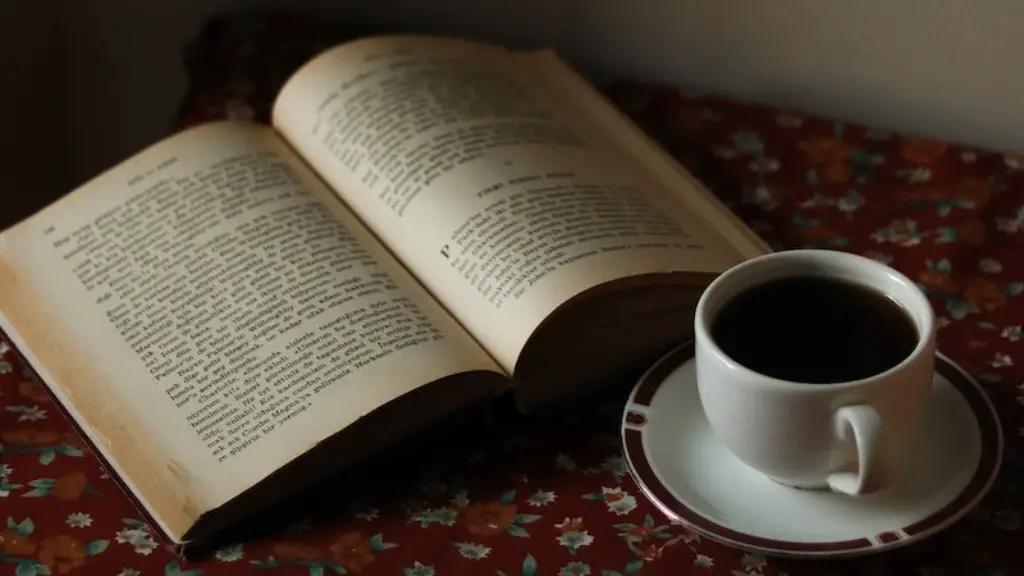Understand the Poem’s Content
Before tackling the task of writing a poetry analysis, consider first the content of the poem. What is the poem about? What does it mean? Read the poem through multiple times, and jot down notes about the poem’s content and the poet’s purpose. Try to identify any literary devices or figurative language the poet has employed, and note any themes, moods, and images in the poem that stand out.
Researching the poet’s life can also be beneficial in understanding their poem; biographical information can often shed light on the poet’s intentions or provide a grounding context. Scan through interviews, diaries, and letters to pick up on any further information regarding the poem.
Map the Poem
Once an understanding of the poem’s content has been reached, draw a visual map of the poem’s structure. Use your notes to map out the order of the poem’s images, emotions, motifs, and themes. Visually representing the poem on paper can be extremely beneficial in piecing together your analysis and structuring your essay.
For further assistance, use a paragraph-by-paragraph analysis, breaking down the poem’s structure. Ask yourself questions about the poem’s speaker: Who is speaking? To whom? About what? Where are they? Consider the figurative language and imagery used, the sound and rhythm of the poem, and the various themes explored.
Develop a Thesis
The thesis of a poetry analysis is the main argument or interpretation that the essay will attempt to explain or prove. This argument should be clearly stated in the introduction section and should be supported throughout the essay with evidence from the poem. A thesis can focus on the author’s tone, imagery, diction, connotations, or any other feature of the poem that captures the reader’s interest.
Create an Outline
With a strong understanding of the poem and the thesis in mind, begin to craft an outline for the essay. An outline allows for a clear structure and will make organizing all the information and evidence much easier. The outline should include the introduction, body, and conclusion, with each section further divided into subheadings.
A poetry analysis should include a clear introduction, a thesis statement, and a poetry analysis body that includes evidence and explanations for each of the major points. The conclusion of a poetry analysis should effectively summarize the findings and implications of the essay.
Write the Essay
Use the outline as a roadmap for writing the essay. Begin the introduction with a hook statement, followed by background information on the poem and the poet. Make sure to also state the thesis of your essay. Explain the order of your essay’s body paragraphs in the introduction, and remember to fill the body with evidence and analysis. Conclude the essay with a brief summary of your findings and the implications of your analysis.
Include Secondary Sources
Including outside sources can increase the quality of an essay. Use secondary material to enhance your argument by drawing evidence from other experts in the field. However, be sure to use reliable sources from well-known publications, and cite all evidence properly.
Revise and Check for Accuracy
Revising the essay is an essential step in the process. Review the essay for accuracy and consistency in its arguments and evidence. Read the essay out loud, and consult any grammar tools to ensure grammatical accuracy. Lastly, proofread the essay for spelling and punctuation mistakes.
Show the Poem’s Artistic Merit
For a poetry analysis essay to be successful, the poet’s artistic merit should be evident throughout the essay. Dig deeper into the subtleties and stylistic features of the poem and consider their impact on the poem as a whole. Assess the poem in terms of its theme, structure, imagery, diction and alliteration. Also consider any possible historical, cultural or biographical context that could shed light on the poem’s context,
Draw Conclusions
Drawing conclusions and assessing the poem’s successes or shortcomings is integral to a poetry analysis essay. The conclusion should clearly and strongly communicate the essay’s conclusion, without simply summarizing the essay’s body paragraphs. Use the evidence in the essay to make a valid judgment about the poem’s effectiveness and suggest any possible improvements.
Engage with Multiple Perspectives
To make the essay more impactful, consider multiple perspectives of the poem. Engage with ideas and arguments other than your own and showcase different interpretations in order to add depth to your own argument. By taking a step back and engaging with varied interpretations, you will also be able to better explore why the poem’s content is significant and how it is personally relevant.
Analyze the Text’s Meaning in Relation to Context
Make sure to explore how the poem’s context and meaning relate to the greater world. Analyze how political, historical, or religious contexts influence the poet’s work and how the poem might be interpreted in different settings. Also consider how the poem reflects the poet’s personal experiences and how it might relate to the experiences of various readers.
Integrate Quotes into the Text
Including quotes is one way to back up your argument and add weight to the essay. Make sure to properly quote the lines and cite the poem according to standards. Be selective when integrating quotes and make sure they accurately reflect the essay’s argument. Too many quotes can make an essay appear choppy and disjointed.
Provide Real-World Examples
When writing a poetry analysis essay, try to address real world applications of the poem. Make an effort to connect the poem to current events, societal challenges, and real world issues. Consider how the poem fits into the literary context and how it reflects the author’s unique voice. Relating the poem to everyday issues can help the reader connect to the poem in a personal and meaningful way.




